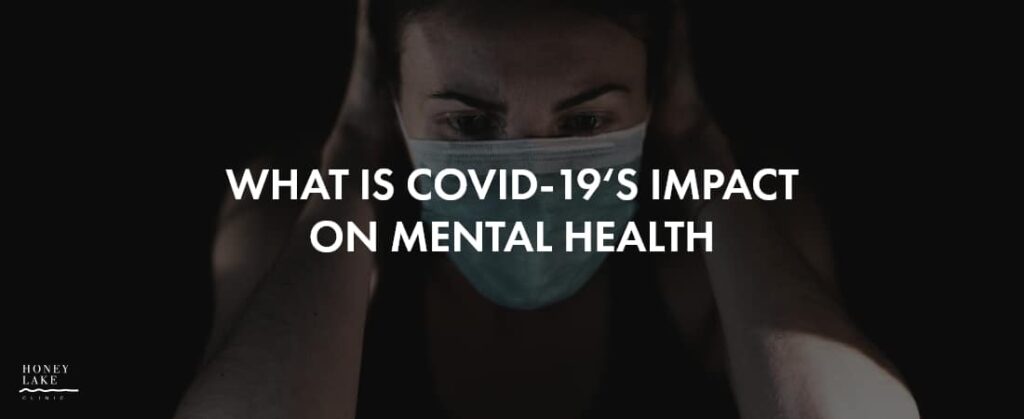What is COVID-19‘s Impact on Mental Health?
As the coronavirus pandemic spreads around the world, it is causing considerable fear and concern among the general population, and especially for those in higher-risk categories such as the elderly and those with underlying health conditions.
In public mental health terms, the main psychological impact has been elevated stress and anxiety levels. Social distancing and quarantine measures and their subsequent impact on people’s lives and livelihoods are, no doubt, contributing to increased feelings of loneliness and despair, and rises in alcohol and substance use.
Global Pandemics are Stressful
It is no surprise that the discovery of a highly contagious, rapidly spreading and potentially deadly virus should generate stress, fear and trepidation. Perhaps you or someone you love is experiencing—
- Heightened fears over your own health and the health of your loved ones
- Worry over your financial situation or job, or loss of support services you rely on.
- Changes in your sleep or eating patterns.
- Difficulty sleeping or concentrating.
- Worsening of chronic health problems.
- Worsening of mental health conditions.
- Increased use of tobacco, and/or alcohol and other substances.
Take care of your mental health. Fear and anxiety can be overwhelming. Seek immediate help if you or someone you love is in crisis. We can help. (855) 222-4756.
Everyone Reacts Differently
We are all unique. Each of our circumstances are different. How you respond to the increased stress and difficulties thrust upon you by COVID-19 can depend on several factors—your background, family and social support systems, your financial situation and your overall health, for instance.
People who tend to respond more strongly include:
- People caring for family members or loved ones.
- People with increased risk of exposure such as frontline workers, health care providers and first responders.
- People who have existing mental health conditions.
- People who use substances or have a substance use disorder.
- People who have lost their jobs, had their hours reduced or other major changes to their employment.
- People who have disabilities or developmental delay.
- People who are socially isolated from others, including people who live alone, and people in rural or frontier areas.
- People experiencing homelessness and food insecurity.
- People who live in congregate or group settings.
- People at higher risk for severe illness from COVID-19 (the elderly and people with certain underlying medical conditions).
Take YOUR mental health needs seriously. Talk with someone confidentially, at Honey Lake, right now. (855) 222-4756.
Take Care of Yourself and Those You Love
Serving and taking care of your loved ones can be a stress reliever, but it should be balanced with appropriate self-care. Take care of yourself by—
- Staying connected. Socially distant doesn’t mean isolated. Utilize calls and video chats to keep in touch. Talk with people you trust about your concerns and how you are feeling.
- Taking care of your emotional wellbeing. Maintaining your own emotional health will help you think clearly and react to the urgent needs of your family and friends.
- Taking breaks from watching, reading, or listening to news stories, including on social media. Hearing about the pandemic repeatedly can be overwhelming.
- Taking care of your body. Breathe. Eat healthy and well-balanced meals. Exercise regularly. Get plenty of sleep.
- Avoiding excessive alcohol and substance use.
- Making time to unwind. Invest time in activities you enjoy.
Take Care of Your Mental Health
People with pre-existing mental health conditions or substance use disorders may be particularly vulnerable in an emergency. Those with conditions such as depression, anxiety, bipolar disorder, or schizophrenia which can affect the way you think, feel and relate to others, may find their symptoms worsening during the pandemic.
